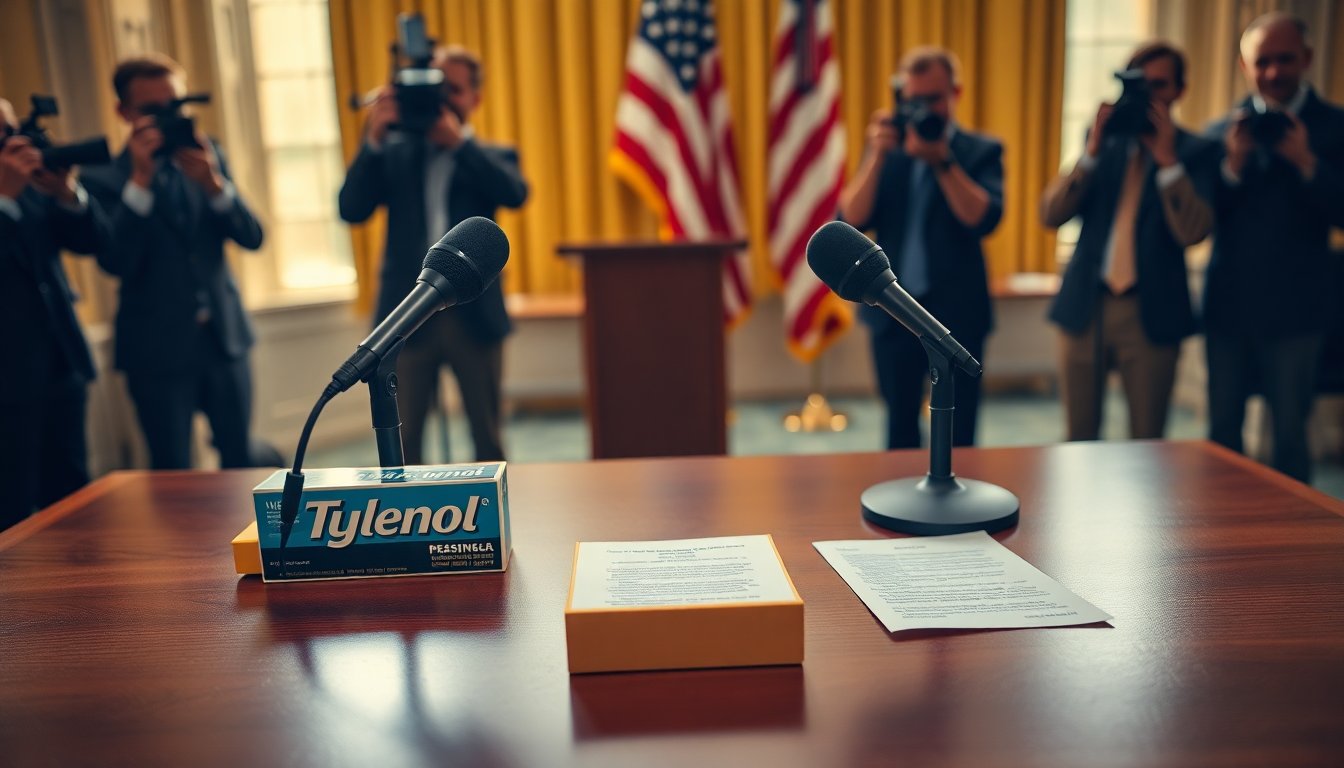Table of Contents
During a recent press conference, President Donald Trump advised pregnant women to avoid Tylenol, a widely used pain reliever known internationally as paracetamol. His comments, which implied a potential connection between the medication and autism, sparked immediate backlash from the medical community.
Trump stated, “Don’t take Tylenol. Don’t take it,” while standing alongside leading public health officials. He further stressed the need for individuals to assess their own situations, saying, “There may be a point where you have to, and that you’ll have to work out with yourself.” His remarks coincided with the FDA‘s announcement to include warning labels regarding possible risks associated with Tylenol.
The Medical Community Responds
Trump’s comments faced swift criticism from prominent medical organizations, including the American Academy of Pediatrics and the American College of Obstetrics and Gynecology (ACOG). These organizations have consistently endorsed paracetamol as one of the few pain relief options deemed safe for expectant mothers. Estimates indicate that nearly half of pregnant women worldwide use paracetamol to relieve pain and manage fevers, which can negatively affect both maternal and fetal health.
Expert Opinions on Trump’s Claims
Dr. Steven J. Fleischman, president of ACOG, criticized Trump’s insinuations linking Tylenol to autism as “irresponsible.” He stated, “When considering the use of medication during pregnancy, it’s crucial to weigh all potential risks alongside the benefits.” His comments align with findings from numerous studies affirming the importance and safety of acetaminophen for pregnant women.
While some studies have suggested a potential correlation between paracetamol and specific neurological disorders, including autism, a substantial body of evidence has not established conclusive links, leaving causation unproven. A significant study published in The Journal of the American Medical Association by Swedish researchers found no connection when comparing children exposed to paracetamol with their siblings who were not.
Public Health Implications
The consequences of Trump’s statements extend beyond public discourse. Arthur Caplan, a bioethicist at NYU Grossman School of Medicine, expressed concerns regarding the negative implications for public health. He described the administration’s claims as “a bust full of misinformation,” emphasizing that contemporary medicine is likely to disregard Trump’s assertions. “Patients are left questioning the reliability of federal science in the USA, necessitating a reliance on reputable sources,” Caplan added.
The FDA’s Cautious Stance
In its updated guidelines, the FDA acknowledged a correlation between paracetamol use and autism, particularly highlighting risks associated with prolonged usage during pregnancy. However, the agency did not adopt Trump’s assertive tone, noting the existence of conflicting studies in the scientific literature and stressing the importance of acetaminophen in managing fevers during pregnancy, as elevated maternal temperatures can pose risks to fetal development.
While the precise causes of autism remain unestablished, experts believe it arises from a complex interplay of genetic and environmental factors. The American Academy of Pediatrics underscores the multifaceted nature of autism, rejecting any singular causative agent.
In conclusion, Trump’s recent remarks regarding Tylenol have ignited significant backlash from the medical community, raising questions about the accuracy of his statements and potential implications for public health. As discussions continue, it is crucial for expectant mothers to consult their healthcare providers to make informed decisions concerning pain management during pregnancy.


